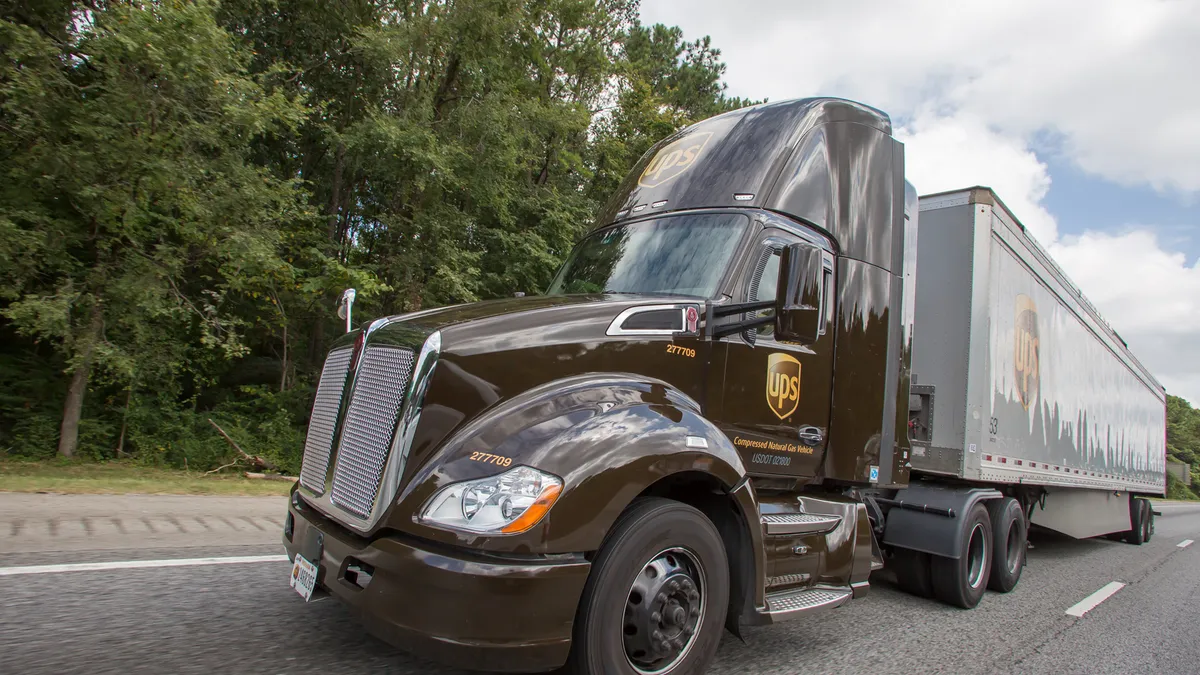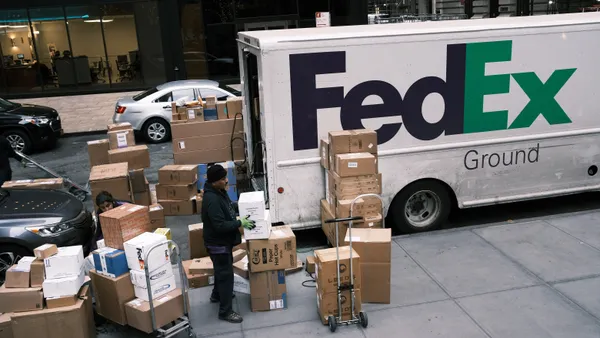Dive Brief:
- UPS will purchase more than 6,000 natural gas-powered vehicles between 2020 and 2022, the logistics company announced Wednesday.
- The investment in alternative fuel vehicles will cost the company $450 million and is meant to help it meet its 2025 sustainability goals, the company said in a press release emailed to Supply Chain Dive. UPS wants to reduce its absolute greenhouse gas emissions from its global ground operations 12% by 2025, according to its most recent sustainability report.
- "We intend for 25% of our vehicles purchased in 2020 to run on alternative fuels," Juan Perez, chief information and engineering officer at UPS, said in a statement. In 2018 this figure was 13%, according to its sustainability report.
Dive Insight:
UPS has been adding Class 8 heavy-duty trucks powered by renewable natural gas (RNG) to its fleet since 2013. In May, UPS agreed to buy 170 million gallon equivalents of RNG from Clean Energy Fuels through 2026, in what it called "the largest commitment for use of RNG to date by any company in the United States."
The compressed natural gas (CNG) systems used to power the tractors will be provided by Agility Fuel Solutions, which will also " provide complete end-to-end natural gas systems for heavy-duty gas trucks, terminal tractors and medium-duty walk-in vans," UPS said. Vehicles with CNG systems can use RNG and conventional natural gas interchangeably, according to UPS.
UPS already has 50 natural gas stations and several thousand natural gas trucks operating in the U.S., Mike Casteel, former UPS director of fleet procurement, told Supply Chain Dive earlier this year.
UPS is focusing on RNG right now because it is becoming more widely available, it is cheaper than diesel and electrification is not yet commercially viable for large-scale use. The logistics provider is also testing Tesla's electric tractors and has reserved 125 of the vehicles, according to its sustainability report.
As logistics companies announce plans to cut their carbon footprint, alternative or renewable fuel sources are increasingly part of these plans. Amazon announced last month it had placed an order for 100,000 electric delivery vans from manufacturer Rivian to help it meet its goal of net zero carbon emissions by 2040. FedEx has also begun investing in RNG and electric vehicles.
RNG is an area where the positive environmental impact and the economics line up for a company like UPS. " Our environmental goals also need to be economically sustainable, so this is one of those cases where they both come together very well," Casteel said in May.















